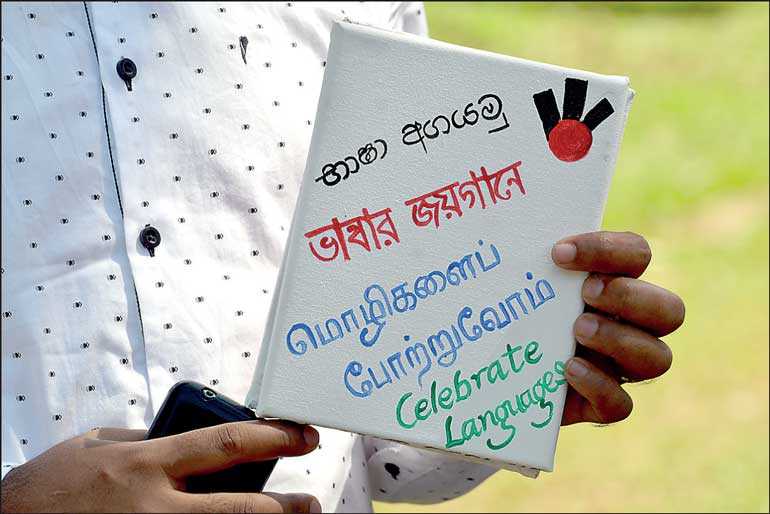Monday Feb 16, 2026
Monday Feb 16, 2026
Friday, 6 March 2020 00:00 - - {{hitsCtrl.values.hits}}

I wrote a similar article back in 2015. Therefore it is only fair that I write again to the new board of ICTA. Situations have changed. Requirements have changed. Decision making heads have changed. I’m not going to even ask for stuff like PayPal and digital literacy... So here are the three things that ICTA  should focus on now, in my opinion:
should focus on now, in my opinion:
1) Break the “communications” barrier
Sinhala and Tamil are official, administrative and judicial languages in Sri Lanka. But there are issues in implementing this constitution. The requirement is that any citizen should be able to easily receive any public service in the language they prefer.
There aren’t enough human translators, and the available ones are expensive. So the basic solution is to build a reliable Sinhala-Tamil, Tamil-Sinhala text translation service. We all know that Google translation is not helpful. Either ICTA should come up with a joint project to improve Google translation for Si-Ta, Ta-Si or develop a local application that is customised to Sinhala and Sri Lankan Tamil languages. The point is, it should not output funny and wrong translations.
Then it should be connected through policy with the government and state institutions, and the private sector so that every public document by default will be made available in both languages “meaningfully”. It should be simple enough so that any worker will be able to use the service freely online. One application is that standard WordPress themes can be created with this language integration, specifically for government and State institutions in Sri Lanka.
This can be executed at an individual user level where for example a mobile app can read a Sinhala type on a sign board and the Tamil translation is augmented real time. I’m not suggesting voice translation here because I’ve learned to expect small wins at a time.
2) Make public services “language independent”
This really is an extension of the first, but needs a different approach. One of the biggest challenges faced by Sri Lankan citizens when receiving public service is that they can’t communicate in a common language. But if ICTA can develop hardware that can be placed at all Government and State institutions which allows citizens to interact by following logical processes in the language they prefer, it will save a lot of unnecessary conflicts.
Basically, cut off or minimise human-human interaction just like how ATMs work. The public officials will do the back-end work and fulfil the service requirement. This will require a customisable application which each organisation can modify to suit their processes. ICTA can also help the organisations to simplify the processes while implementation.
One of the most urgent places where we need this service is at all police stations when citizens have to lodge a complaint. Lack of common language speaking officers to write down the complaint can be solved by using a combination of a voice and text recording interface.
3) Build blockchain-based governance systems
To start with, ICTA should develop an e-procurement system built on distributed ledger technology. This will stop procurement level corruption once and for all. All bidders will have an encrypted copy of all communications and transactions from start to end preventing fraud. If we had such a system at the Central Bank, bond scam/s as we know it would not have been possible.
ICTA should also develop a government decision making system on blockchain which can be implemented at different organisational levels. For example, it can be used at a small Pradeshiya Sabha, at the Parliament, and eventually at State level voting.
Of course this will require digital identities for all sovereign citizens. I don’t think the current digital ID project is designed with this level of sophistication in mind. But at least ICTA can start with small Government and State organisations and gradually scale up.
There are plenty of other Information and Communications Technology services that need to be urgently developed with the leadership of ICTA to improve efficiencies in public service. Perhaps ICTA should stop wasting time and money on startup competitions and awards because the impact of those projects have been insignificant in the grand scheme of things.
(Oh and one more thing, please make a decent website where all Government gazettes can be accessed with basic search function without actually having to wait for hours to download PDFs… only to get an error message in the end.)